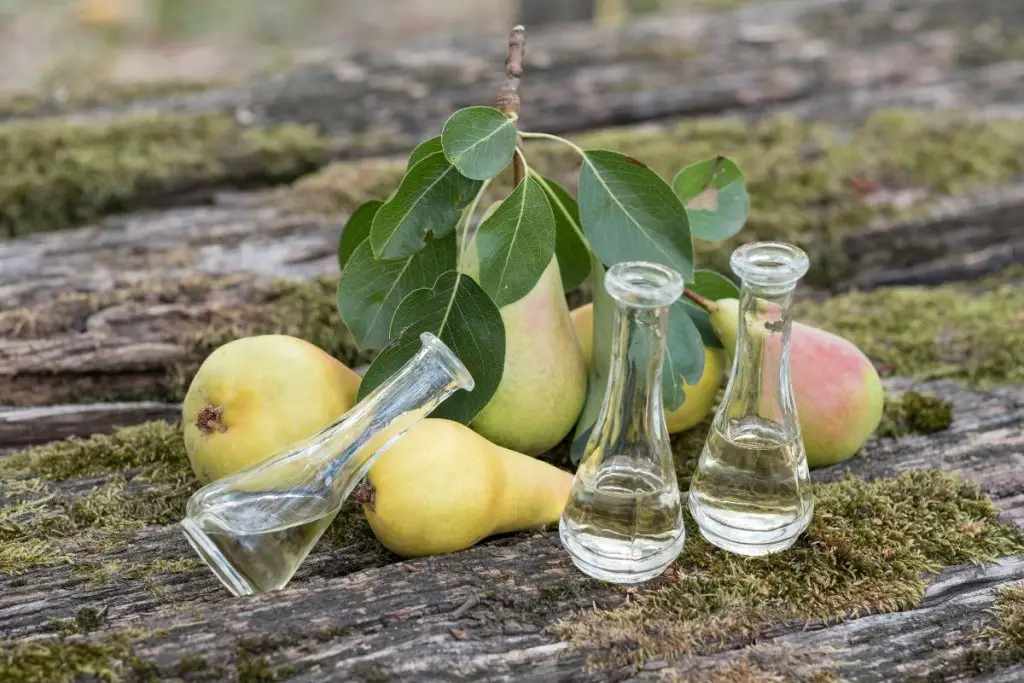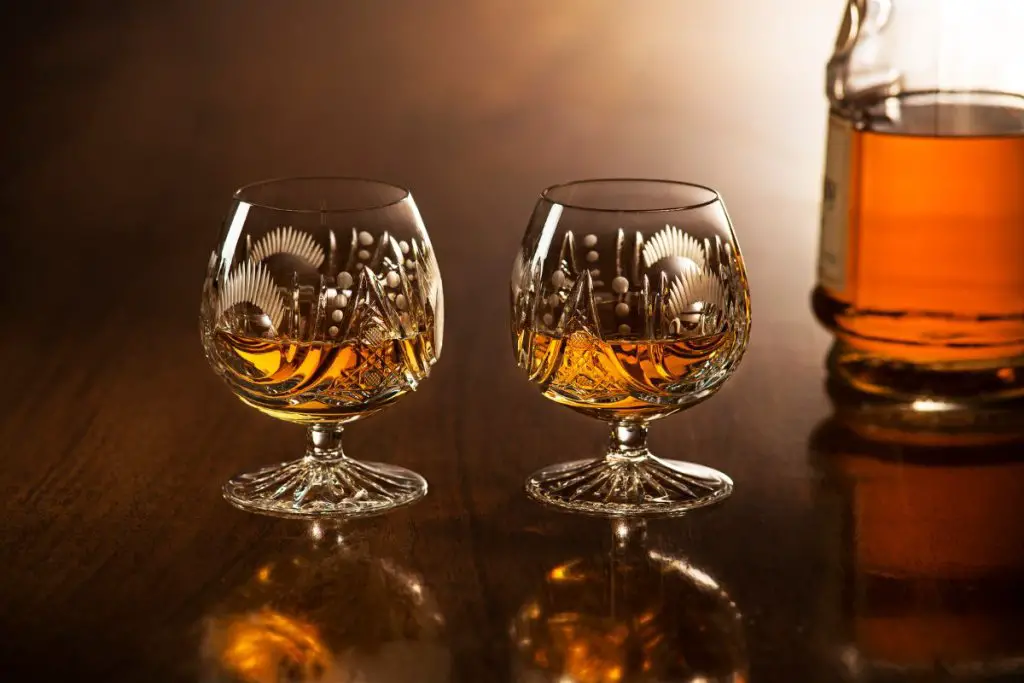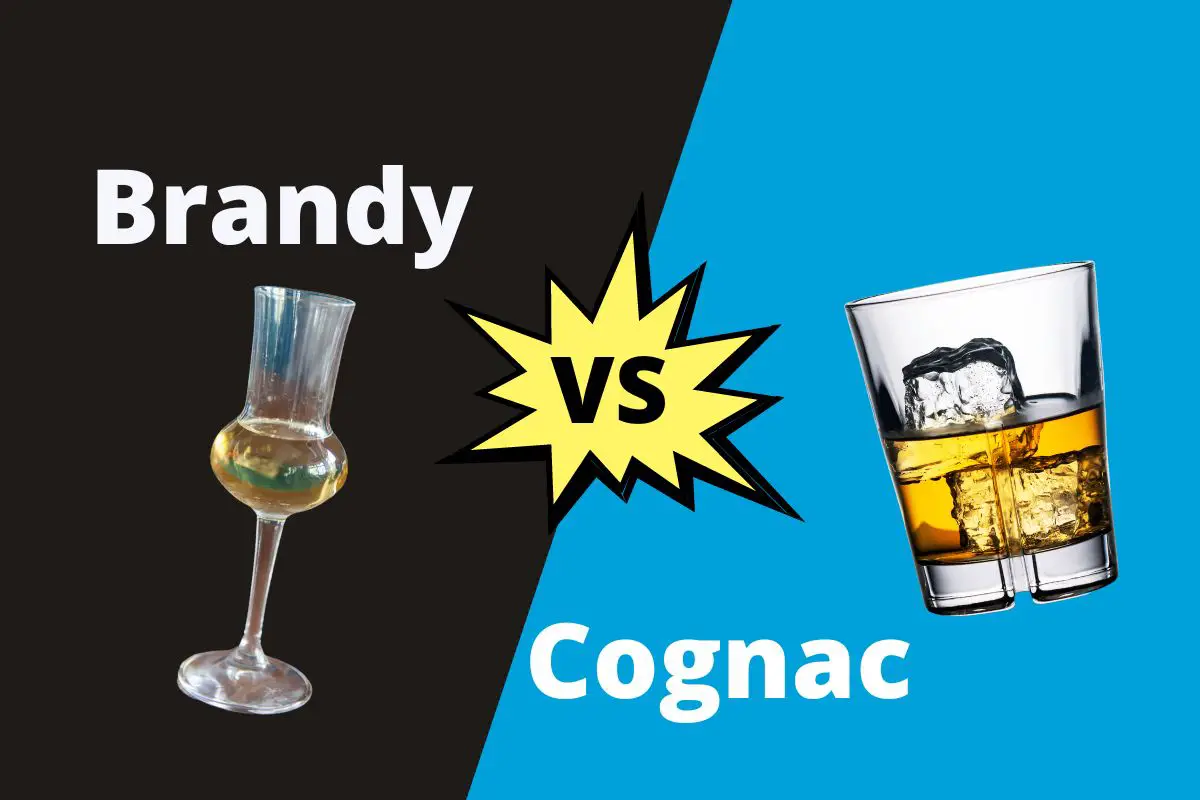The difference between brandy and Cognac is that brandy is a fruit juice that is distilled, while Cognac is a certain type of brandy that comes from the southwest region of France and consists of a white grape base.
Table of Contents
Brandy vs Cognac
| Brandy | vs | Cognac |
| Distilled twice in pot stills | Distillation and Production | Double distillation with a heated gourd and a glass gourd inside a double boiler |
| Apples, pears, and grapes | Main Ingredients | White grapes |
| Very Special (VS), Very Special Old Pale (VSOP), Extra Old (XO) | Aging | V.S., V.S.O.P., Napoleon, X.O, and Extra |
| Dried fruits, flowers, and citrus zest | Taste Notes | Dried fruits, nuts, cigars, toffee, and warm spices |
What is Brandy?
Brandy is a distilled alcohol made from fermented fruit juice. Its production dates back to France in 1313 when people prepared it as a digestif or medicine as it possessed sanitary powers, and doctors called it “the water of life.”
While it mostly comes from grape varieties, it can also be derived from other fruits like plums, pears, and apples.
Because brandy is made from fruits, most people compare it to wine. However, the distillation process takes it to the next level. Distilling concentrates the wine and increases the alcohol level while removing most, if not all, of the water content of the fruit.
Most brandies have around 90-100% proof and a distinctly sweet flavor. While brandy has a brown color, it’s not whiskey. You can try Hennessy, Remy Martin, Martel, and Asback to enjoy the finest brandy experience.

What is Cognac?
Cognac is a type of French brandy, much like bourbon is a type of whiskey. It implies that every Cognac is brandy, but not every brandy is Cognac. The distilled spirit comes from the Cognac region of France.
Cognac has a fruit juice base made from white grapes, which undergoes two rounds of distillation between October and March. France has strict restrictions and standards to preserve the quality of the grape-based spirit cognac.
Some of the best Cognac brands are Hine, Kelt, Pierre Ferrand, and Courvoisier.

Difference Between Brandy and Cognac
Given the numerous similarities between them, it can be challenging to understand the differences between Cognac and brandy.
Distillation And Production
Although both brandy and Cognac go through a production and distillation process, the process differs for each spirit. Cognac is brandy because it’s distilled from grape juice. Manufacturers must distill it twice in copper pot stills to get the premium taste.
Brandy, on the other hand, requires double distillation.
Cognac distillation occurs with a heated gourd, while brandy distillation happens with a glass gourd inside a double boiler.
Main Ingredients
The most obvious difference between the two spirits is in the ingredients that go into making them. The production of brandy requires juice from grapes or apples, but Cognac can be made only from the grapes of the Cognac region of France.
White grapes or Ugni Blanc grapes from Grande Champagne, Petite Champagne, or other terroirs of Cognac, Southwest France, must be used for making Cognac. Brandy manufacturing only requires fruit juice from apples, pears, and grapes.
Aging
The complex flavors of these spirits that make them distinct come from the unique blending and aging process. It also allows manufacturers to combine different flavors for different ages before they bottle them.
All Cognacs are Eaux de vie before blending, and then they get blended flavors, depending upon the age and the barrels or casks used for aging. Manufacturers keep Cognac in French oak barrels for at least two years. Its types are V.S., V.S.O.P., Napoleon, X.O, and Extra.
While there is no specific aging requirement for brandy, it helps mellow the harsh taste of the spirit. The types of brandy-based on age are – Very Special (V.S.), aged a few months to 2 years; Very Special Old Pale (V.S.O.P.), aged less than four years; and lastly, Extra Old (X.O.), aged less than six years.
Taste Notes
The taste of brandy is primarily defined by the variety of grapes or other fruits used to make it. It tends to be sweeter than wine or whiskey since it comes from the fermentation of fruits. You can find hints of dried fruits, flowers, and citrus zest.
The master blender determines the flavor of Cognac. Dried fruits, nuts, cigars, toffee, and warm spices are some of the common tasting notes you can find in them.
Can You Substitute Brandy For Cognac?
Brandy is a good substitute for Cognac since Cognac is a high-end brandy from a specific region. Since they are essentially the same, you can use them interchangeably.
When you intend to drink alcohol alone, a 1:1 substitution of Cognac with brandy is ideal. The same rule also applies to using brandy in place of Cognac while cooking without affecting the taste.
Which Tastes Better: Brandy or Cognac?
Brandy and Cognac have different tastes due to the varying ingredients, aging, and distillation. People who prefer sweet and fruity flavors prefer brandy and the hints of dried fruits, flowers, and citrus that come with it.
On the contrary, Cognac is a dry spirit with a distinct aroma and flavor. Since it is an extension of wine, you can still enjoy its grape flavor. If you enjoy wine and finer brandies, try Cognac.
If you’ve found this article helpful, check out our post comparing scotch and whiskey.

